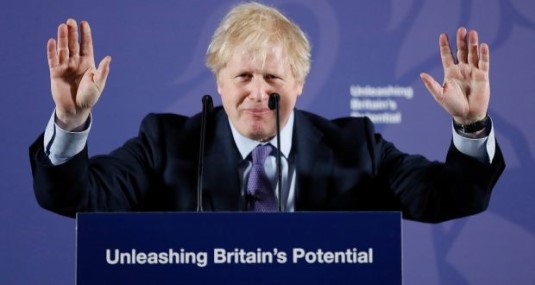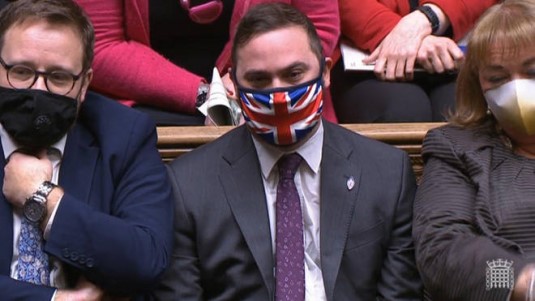
Gray drew attention to the Downing Street operation's at-work drinking culture ("excessive consumption of alcohol is not appropriate in a professional workplace at any time"), other behaviours not in-keeping when the nation suffered severe restrictions on its liberties, and most damning "failures of leadership and judgement" on the part of the Prime Minister and senior civil servants. We also learned Gray investigated 16 events between May 2020 and April last year, of which 12 crossed the threshold of criminal responsibility and are now the province of the police. One of these events was a private party in the Downing Street flat. In other words, the Prime Minister's residence. Even the most gullible cheerleader would have a job explaining away that one.
Even this massaged and watered down account would be enough to compel virtually any other PM to resign, and there were testier responses from the Tory benches when Johnson rose in the Commons to put his spin on the Gray statement. Backbenchers who, in previous weeks, said they were waiting for the full report before they made up their mind were either asking for assurances it would eventually be published (Johnson repeatedly gave no such undertaking), that among the changes to Downing Street would be a more collegiate Cabinet-based government , or that there would be renewed focus on Tory priorities post-investigation. Quite remarkable to see backbenchers setting out their price for continued loyalty, or at least indulgence of the government in front of the opposition benches and those watching from home. Andrew Mitchell (remember him?) was the latest Tory to withdraw his confidence in Johnson, and Theresa May made a cutting intervention. You could almost hear centrists pining for what once was.
Johnson has survived the day, but what about the coming weeks? He's probably safe for as long as the Met investigation does its work. But herein lies a danger. Conventional wisdom would dictate that nothing less than complete exoneration would save "Big Dog". That would be good enough for Tory MPs who are loathe to dispose of their leader under popular pressure, but would anger the public in the face of open-and-shut evidence. Even worse would be an outcome less damning than the Gray update. Such an eventuality runs the risk of another blow to the legitimacy of the government and the Met - two institutions whose reputations for probity are not peaking at present.
If the Met decide to impose fixed penalty notices, I'd like to think that would be enough for Tory MPs and they would trigger the no confidence vote, but the convoluted defences and cold feet seen this last fortnight means it's unlikely unless a senior Tory takes a lead - such as a member of the Johnson cabinet. But where is such a figure? Liz Truss and Rishi Sunak are too compromised by their leadership ambitions and cannot be seen anywhere near a plot, Sajid Javid by his desire to be a frontbencher in whatever regime follows the Johnson circus, and the Priti Patels, Nadhim Zahawis, and Jacob Rees-Moggs hobbled by their fortunes being tied to the Prime Minister. It's almost as if Johnson contrived a cabinet in which no one can ever be in a position to wield the knife.
It's looking increasingly likely that the denouement to this saga won't come until the local election results are in. Tory MPs typically care little for local government and senior Conservatives even less, but when these tend to favour the Tories (older people, among whom they have disproportionate support, are more likely to turn out than younger and working age people), and so if the results are catastrophic this will make many MPs fearful for their careers. In the choice between Johnson and a better chance of keeping the £82k salary, he stands no chance against the pull of their wallets.
Image Credit







